Our Research
In times of climate change and global population growth, integrated crop water management can contribute to closing the global food gap. In Southern Alberta, irrigation can result in a 300% increase of agricultural value compared to dryland farming by providing a steady water supply. Realizing this potential requires ongoing integration of new technology and management strategies into irrigated operations.
Precision irrigation is the main focus of the Mueller Irrigation Research Group at Lethbridge College. We investigate the technologies and software that can enable more sophisticated water management on farms and quantify yield and resource changes as a result of implementing these control systems. From here, we explore the impacts of changes in water use efficiency at the field scale on needs for water storage, distribution, and licensing at the level of irrigation districts and watersheds. The research is shaped in close collaboration with local producers, the provincial government, and the irrigation districts. Students of the agriculture science, environmental science, and computer information technology programs of Lethbridge College are involved in the execution of the research.
Current projects include field & lab studies of water and nutrient management with subsurface drip irrigation systems and field & model studies of the opportunities for precision irrigation strategies in complex landscapes.
News & Stories
View our project videos on YouTube.
Irrigation research to create maps of plant-available water in fields receives funding
Industry Partnership Taps College Researchers Agriculture Data Project
Lethbridge College Study Finds Fertile Ground Subsurface Irrigation Research
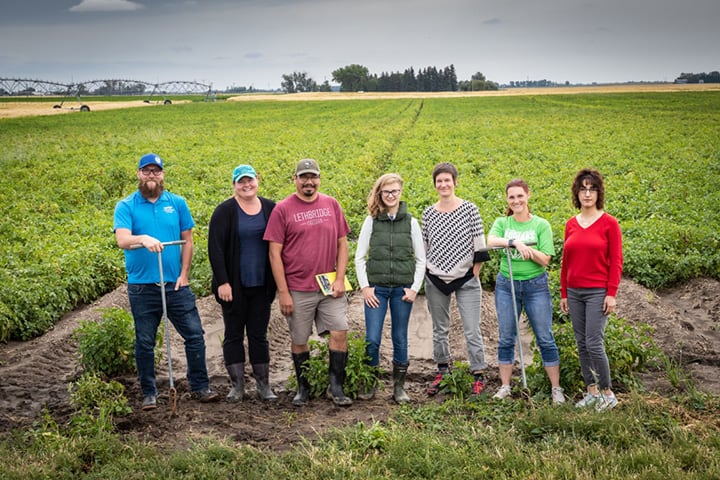
Potato growers partner on irrigation study
A new study will dig deep into the soil to determine how watering and irrigation methods affect southern Alberta’s potato crops. The four-year research project is a partnership between Lethbridge College’s Centre for Applied Research, Innovation and Entrepreneurship, and the Potato Growers of Alberta. It is made possible through a grant from the Canadian Agricultural Partnership.
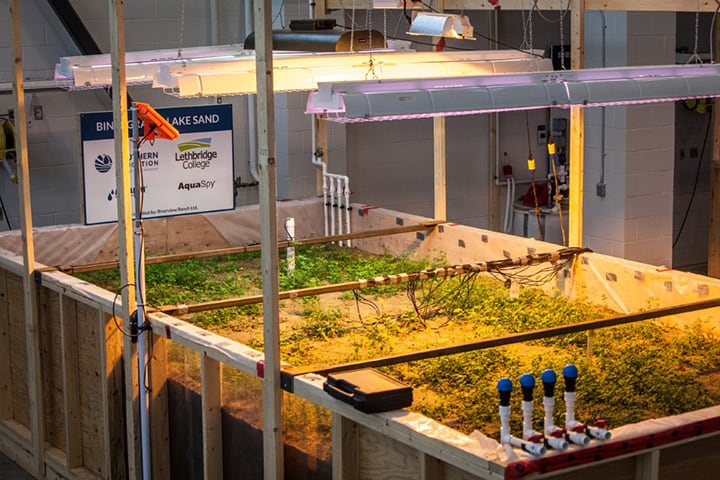
Southern Alberta soil comes inside at Lethbridge College to test irrigation properties
Multiple tonnes of southern Alberta’s most common soil types sit inside three massive, custom-built wooden bins at Lethbridge College. Housed inside the college’s Innovation Space in the Trades, Technologies and Innovation Facility, the soil is being used to test subsurface drip irrigation (SDI) systems – without the variable factors of wind, rain or gophers.
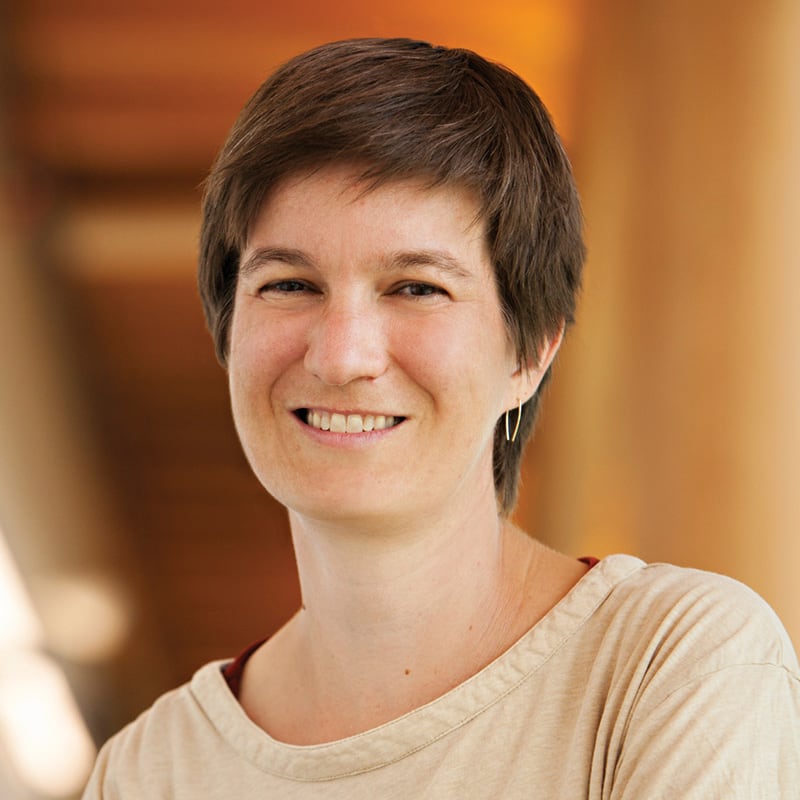
Meet Our People
Willemijn Appels, PhD
Mueller Applied Research Chair in Irrigation Science
Dr. Willemijn Appels is the Mueller Applied Research Chair in Irrigation Science at Lethbridge College. She and her team investigate how new developments in precision agriculture and irrigation can be implemented in southern Alberta.
Hailing from the Netherlands, Willemijn was trained as a hydrologist at Wageningen University. A post-doctoral fellowship brought her to the University of Saskatchewan in 2012, after which she decided to stay on the Prairies. Her expertise lies in water flow and solute transport on and in the upper layers of soil. She loves all things water.
Direct: (403) 320-3202 Ext. 5278
Email: [email protected]

Rezvan Karimi Dehkordi, PhD
Research Scientist
Dr. Rezvan Karimi Dehkordi was born and raised in Iran, where she completed her B.Sc. and M.Sc. degrees in Soil Science at the Isfahan University of Technology. She came to Canada in 2010 to begin her doctoral program in the Department of Soil Science at the University of Manitoba. There, her research focused on reducing nutrient loss from agricultural lands to Lake Winnipeg. After graduation, she completed a three-year postdoctoral fellowship at Agriculture and Agri-Food Canada in Lethbridge. Her research in Alberta focused on the long-term soil nitrogen and carbon dynamics in a century-old wheat experiment. She says her interests extend to the fate of nitrogen in Canadian agroecosystems. She is currently a research associate at Lethbridge College, where she works on the modeling of soil water and nitrogen distribution under subsurface drip irrigation and fertigation systems.
Direct: (403) 320-3202 Ext. 5258
Email: [email protected]

Michael Kehoe, PhD
Research Scientist
Michael Kehoe is a data scientist with an undergraduate degree in computational mathematics and a PhD in aquatic ecology. Michael has worked in a wide range of different areas offering statistical and mathematical support to collaborators. After completing a PhD on harmful algae blooms at the University of Queensland in Australia, Michael worked as a post doctorate at the University of Amsterdam. During that time he worked primarily on the effects of climate change on phytoplankton community composition in the ocean. Since moving to Canada in 2014, until last year, Michael has been working with a water treatment plant organization to understand the drivers of long and short terms changes in raw water quality. Now with Lethbridge College and CARIE, Michael is supporting research in agriculture and aquaponics.
Direct: (403) 320-3202 Ext. 5278
Email: [email protected]

Nathan Linder
Research Technician
Nathan Linder is a Field/Lab Technician who graduated from The Agricultural Sciences Plant and Soil Program at Lethbridge College in 2017. Nathan has worked with the Mueller Irrigation Group since graduation as a Technician supporting irrigation studies. Working with the College has Nathan working to support a variety of different studies, but he can usually be found in a potato field in the summer or in the College’s subsurface drip experimental bins in the winter. During the growing season Nathan’s day is never the same: some days he is flying a UAV collecting aerial imagery of the field sites, others he may be helping the summer staff with collecting samples or showing them how to troubleshoot a problem with one of the many instruments installed at a field site. When not in the field Nathan spends his time doing anything from maintaining and installing soil sensor banks, irrigation systems, and plants in the subsurface drip experimental bins to quality checking and processing the samples and data obtained from the various studies conducted by the Mueller Irrigation Group.
Direct: (403) 320-3202 Ext. 5839
Email: [email protected]
Blaire Harley
Luiz Tregellas Madeira
John Gil Casallas
Carollynn Lemky
Adele Harding
Amy Carruthers
Current Projects
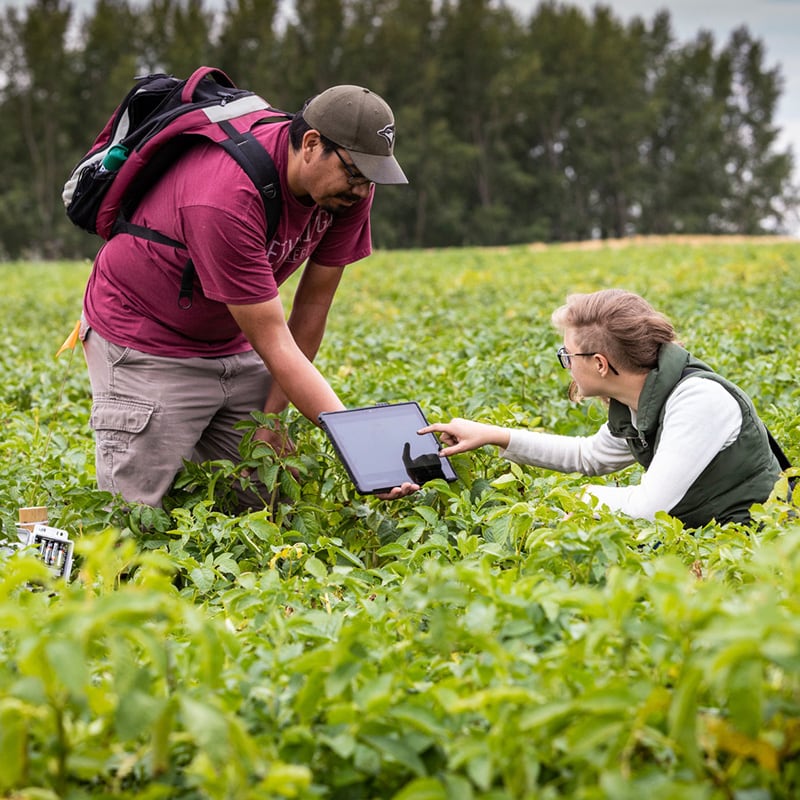
Towards climate-robust irrigation water management for potato production
This project will study five different potato fields in southern Alberta. The watering practices of two producers near Vauxhall, as well as farms near Bow Island, Chin and Taber, are being monitored. The diversity of fields allows researchers to study a variety of different soil types and topographies, which will give a holistic look at how moisture reacts with and affects potato crops. The research team will record how producers use their existing irrigation and available water sources and the outcome it has on crops in different parts of their fields.
Industry partners: Potato Growers of Alberta, GrowTEC, Bennen Farms, Windiana Farms, Torlang Farms, Stiekema-Kolhorn Farms
Project lead: Dr. Willemijn Appels
Enhancing yield and nutrient use efficiency of crops under subsurface drip fertigation in southern Alberta
Subsurface drip irrigation (SDI) is gaining popularity in Alberta, currently covering 1,090 ha of field crop area. In addition to improving water use efficiency, SDI can be used for nutrient management during the growing season. Current analyses of subsurface drip fertigation (SDF) are largely based in the USA for corn, soybean, alfalfa, and cotton crops. This study aims to investigate the efficacy of SDF for crops grown in Alberta, e.g. canola, dry beans. The proposed on-farm study will help producers who operate or consider SDI systems assess the cost efficiency of SDF strategies for their crops.
Industry partner: First Fruit Farms
Project lead: Dr Rezvan Karimi
Can fertigation frequency affect nitrogen use efficiency and nitrate leaching loss?
Subsurface drip irrigation (SDI) is becoming of increasing interest to irrigated field crop producers in Alberta. In addition to improving water use efficiency, SDI can be used for nutrient management during the growing season. There is no study on effect of fertigation frequency during growing season on nitrogen used efficiency and nitrate leaching loss. This study aims to investigate the efficacy of SDF for crops grown in Alberta. The results of the proposed study will help producers who operate SDI systems, or those who consider SDI, make evidence-based decisions on SDF strategies for their crops.
Project lead: Dr Rezvan Karimi
Effect of different levels of water and fertilizer management (N, Fe, and Zn) on yield components of maize via drip tape irrigation system
The experiment is conducted at the research farm of Isfahan University of Technology located in Lavark, Iran to determine the effects of variable irrigation levels and N, Fe. Zn fertilizer rates and their interactions on water and N use efficiency of silage corn under arid conditions.
Project lead: Dr Rezvan Karimi
Partner: Isfahan University of Technology
Past Projects
Despite the ability of soil moisture observations to significantly increase agricultural water use efficiency and provide important increases in yield and product quality, they remain under-utilized in irrigation water management in Southern Alberta. Jadler Industries and Random Acronym are producers of the FieldTracker Telemetry Device for remote field data monitoring. The FieldTracker was designed for industrial operations that require real-time observation and reporting of variables such as flow rate, water level, temperature, and water chemistry. Currently, Jadler Industries and Random Acronym are incorporating weather and soil moisture sensors into a package aimed at the agricultural industry in Southern Alberta.
Industry partners: Jadler Industries, Random Acronym
Project lead: Dr. Willemijn Appels
Site-specific irrigation management (SSIM) or precision irrigation is being advertised as a way to increase yields and water use efficiencies (WUE) in regions where irrigation water availability is limited. This project, with field work near Coalhurst, AB, aims to assess the potential for SSIM in the context of southern Alberta, Canada. Our field site is a 126 ac field with a well-defined topographic gradient and soils in loam, sandy loam, silt loam spectrum. The field is under active production, with the owner splitting irrigation applications of his center pivot between the "high" and "low" half of the field.
Since 2018, we measure weather variables, groundwater, and soil moisture dynamics at multiple locations during the growing season. These observations are complemented with occasional soil moisture surveys along a transect and UAV imagery. While soil moisture dynamics, groundwater depth, and irrigation volumes are significantly different between the two halves of the field, total biomass production and yield were uniform throughout the field, indicating SSIM was a sensible approach in this field.
We use a crop-water-soil model to assess how a threshold-based irrigation schedule would have differed from the actual irrigation management at this site and to investigate “what-if” scenarios for drier/wetter/cooler weather conditions and deeper groundwater levels. The model simulations show that uniform, high yields could have been obtained without SSIM, but that SSIM improves WUE substantially. The magnitude of the improvement is largely determined by initial conditions, which in this region are a result of fall rains and spring snowmelt, and capillary rise from the shallow groundwater. When these reservoirs are depleted, crop water demand drives the irrigation requirements and a uniform irrigation schedule can be implemented. These results illustrate that the relevance of SSIM is related to larger scale hydrological processes and may vary considerably between years.
Industry partners: Western AB Soil and Double H Feeders.
Lethbridge College (LC) and Southern Irrigation (SI) are partnering to develop a better understanding of water flow in soils with subsurface drip irrigation (SDI) systems. In their SDI operations during the warm and dry summer of 2017, SI encountered unexpected redistribution of water in various fields with SDI systems. Here, we propose a project that addresses this knowledge gap in a laboratory, computer, and field setting.
For the laboratory experiment, three large (6x3x1.2 m) soil bins will be constructed and filled with three different local soils. An alfalfa crop will be seeded in each of the bins. When the crop is established, sixteen irrigation scenarios will be tested. We will collect data on the horizontal and vertical distribution of water with soil moisture sensors positioned at various depths and distances around the SDI lines and emitters. With these data, we will calibrate a HYDRUS-3D model to generalize the laboratory results to other soil and crop types. Based on the laboratory and model simulation results, irrigation management plans will be designed for three field locations with SDI systems. At these field locations, soil moisture dynamics will be monitored throughout the growing season. We will evaluate the extent to which the complexity of the real world interferes with the soil moisture dynamics as observed in the controlled laboratory settings.
We expect the results from the laboratory and field experiment to improve installation and management recommendations of SDI systems in western Canada. Benefits for SI include development of evidence-based installation and scheduling recommendations and having access to an SDI demo for their staff and customers. Benefits for LC include access for researchers and students to working with SDI technology (a first) as well as collecting data for its larger irrigation research program, which focuses on improving water use efficiency of the irrigated agriculture sector. By combining research grade and commercial soil moisture technologies, the project will contribute to the incorporation of new soil physical findings in on-farm irrigation water management.
Funded by: NSERC and industry partner Southern Irrigation
MSc project of Danielle Crawford (graduate of Ecosystem Management degree – Lethbridge College) under supervision of Dr. Willemijn Appels and Dr. Kenny Corscadden. The goal of the project is to quantify and explain the variability of plant available water in various management zones of a potato field.
Funded by: an NSERC Discovery grant (Dr. Kenny Corscadden, Dalhousie University) and the Mueller Applied Research Chair with in-kind support by Alberta Agriculture and Forestry.
Decision-making for crop management can be improved with detailed, frequent observations of soil, weather, and plant conditions. The temperature of a crop reveals information on its well-being: the cooler the crop is compared to the air temperature, the more successful it is at obtaining water. In this project we built and tested a wireless infrared camera to measure the temperature of plants in an agricultural field. From this data, we developed a computer program that translates the images into an indicator of water stress level that is useful for irrigation scheduling.
Dissemination
Ghimire, C.P., W.M. Appels, L. Grundy, W. Ritchie, S. Bradley, and V. Snow. 2021. Towards predicting the initiation of overland flow from relatively flat agricultural fields using surface water coverage. Journal of Hydrology, 596:126125. doi:10.1016/j.jhydrol.2021.126125.
Karimi, R., and Appels W.M. 2021. A new facility to investigate management of subsurface drip irrigation systems for field crops. Irr. Sci. https://doi.org/10.1007/s00271-021-00741-3
Appels W.M., and Karimi, R. 2021. Analysis of soil wetting patterns in subsurface drip irrigation systems – indoor alfalfa experiments. Agr. Water Manage. https://doi.org/10.1016/j.agwat.2021.106832
Subedi, M., Karimi, R., Wang, Z., Graf, R.J., Mohr, R.M., O'Donovan, J.T., Brandt, S., Beres, B.L. 2021. Winter cereal responses to dose and application timing of Trinexapac‐ethyl. https://doi.org/10.1002/csc2.20472
Karimi, R., Pogue, S., Kröbel, R., Beauchemin, K.A., Schwinghamer, T., and Janzen, H.H., 2020. An updated nitrogen budget for the Canadian agroecosystem. 304, 107046. Agr. Ecosyst. Environ. https://doi.org/10.1016/j.agee.2020.107046
Appels, W.M., A.E. Coles, and J.J. McDonnell. 2018. Infiltration into frozen soil: From core-scale dynamics to hillslope-scale connectivity. Hydrological Processes, 32:66-79. doi:10.1002/hyp.11399.
Appels, W.M., A.M. Ireson, and S.L. Barbour. 2018. Impact of textural and structural heterogeneity on unsaturated flow and transport through mine waste rock. Advances in Water Resources, 112:254-265. doi:10.1016/j.advwatres.2017.12.008.
Karimi, R., Janzen, H.H., Smith, E.G., Ellert, B.H., and Kröbel, R. 2018. Soil carbon dynamics in wheat plots established on grassland in 1911 as influenced by nitrogen and phosphorus fertilizers. Can. J. Soil Sci. 98: 580-583. https://doi.org/10.1139/cjss-2017-0133
Karimi, R., Akinremi, W., and Flaten, D. 2018. Nitrogen- or phosphorus-based pig manure application rates affect soil test phosphorus and phosphorus loss risk. Nutr. Cycl. Agroecosys. 111: 217-230. https://doi.org/10.1007/s10705-018-9924-8
Karimi, R., and Akinremi, W. 2018. Nitrate leaching in a Loamy Sand soil receiving two rates of liquid hog manure and fertilizer. J. Environ. Qual. 47: 513-521. https://doi.org/10.2134/jeq2017.08.0333
Karimi, R. 2021. Can fertigation frequency affect nitrogen use efficiency and microbial communities? Prepared for Centre for Applied Research internal Fund (CARIF)
Appels, W.M.. (2021) Remote soil moisture data collection in southern Alberta. Lethbridge College Final Report. Prepared for NSERC, Jadler Industries, and Random Acronym.
Karimi, R. 2020. Enhancing yield and nutrient use efficiency of crops under subsurface drip fertigation in Southern Alberta. Prepared for Canadian Agricultural Partnership (CAP)
Appels, W.M. (2020). Below the surface: using soil moisture observations and simulations to optimize installation and operation of subsurface drip irrigation systems in Southern Alberta. Lethbridge College Final Report. Prepared for NSERC and Southern Irrigation.
Karimi, R. 2021. New research digs into value of subsurface fertigation. https://www.albertafarmexpress.ca/news/new-research-digs-into-value-of-subsurface-fertigation/
Karimi, R. 2021. Effect of strip tillage and precision planting on Canola emergence, seed yield and quality. https://lethbridgenewsnow.com/2021/02/18/lethbridge-college-and-farming-smarter-studying-how-to-increase-canola-yields/
Karimi, R. 2021. Under is better? A look under the soil at subsurface drip irrigation – its current use and future potential as global water availability stretches to its limits. https://informa.turtl.co/story/new-ag-international-english-magazine-sept-oct-2021/page/9/1
Potato videos - https://www.youtube.com/watch?v=UrK7LcqwT2w
Partners
Funding Partners
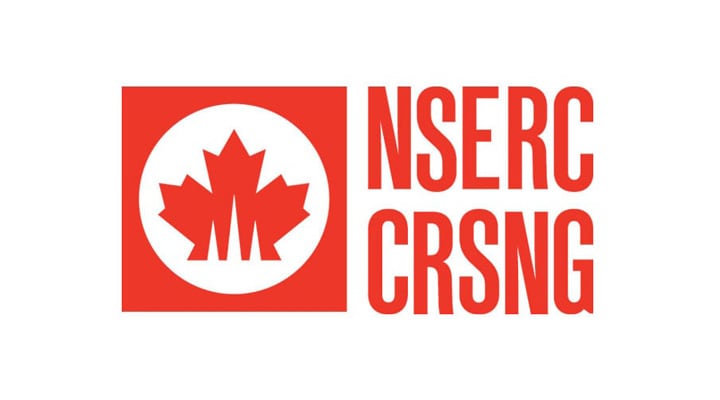
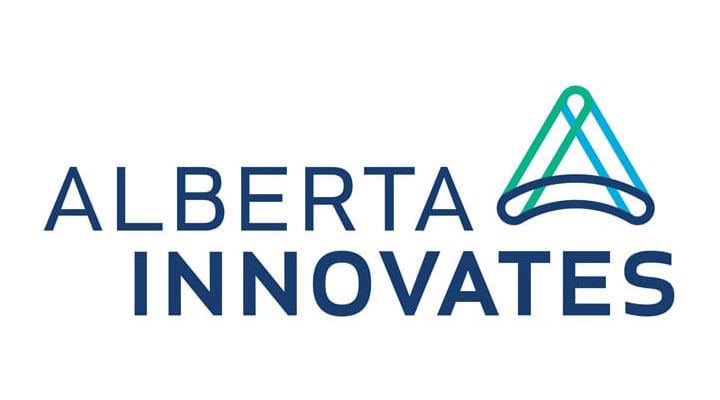
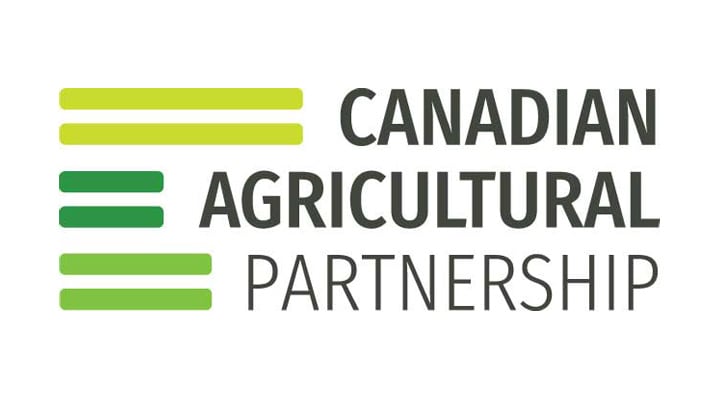
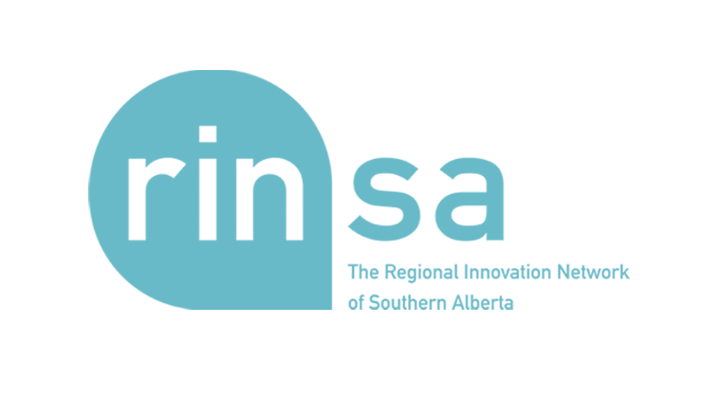
Industry Partners
Southern Irrigation
Jadler Industries
Random Acronym
Potato Growers of Alberta
FarmVu & Skaha Remote Sensing
Western AB soil, Double H Feeders
First Fruit Farms
GrowTEC
Bennen Farms
Windiana Farms
Torlang Farms
Stiekema-Kolhorn Farms
Farming Smarter
AgResearch Ltd (New Zealand).
Public Partners
Dalhousie University
University of Saskatchewan
Alberta Agriculture and Forestry
Agriculture and Agri-food Canada
Isfahan University of Technology (Iran)
Wageningen University (the Netherlands)